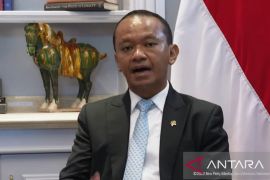"As they know that they have imported a lot of goods so far, they have agreed to limit their imports to products needed for operational purposes from here on," Trade minister Gita Wirjawan said.Jakarta, Sept 12 (Antara) - The Indonesian business community has agreed to reduce imports to prevent the country`s current trade deficit and current account deficit from widening further, according to Trade minister Gita Wirjawan.
"As they know that they have imported a lot of goods so far, they have agreed to limit their imports to products needed for operational purposes from here on," he said after a coordination meeting on boosting manufacturing exports here on Wednesday.
The meeting was attended by industry minister MS Hidayat, trade minister Chatib Basri, the general chairman of the Indonesian Employers Association (Apindo), Sofyan Wanandi, and the chairman of the Indonesian Exports Association, Benny Sutrisno.
At the meeting, Gita revealed, many Indonesian businesspeople complained about the influx of legally and illegally imported products, both without proper documentation, into the country and urged the government to prevent it from happening.
"We will take action. For legal imports we can implement anti-dumping measures or other steps as per WTO instructions. We will record everything now," the minister said.
Gita stated that Indonesian businesses have agreed to reduce their consumption of oil and gas, which have been the most responsible for pushing the trade deficit up to US$5.65 billion as of July 2013.
"They are aware that all the oil and gas they export are not always for operational and production purposes. This problem will be addressed first, as there has been excessive importing of oil and gas," he pointed out.
The minister expressed hope that businessmen could boost their export performance by maintaining the levels of exports to their main export destinations and seeking new ones.
"Our exports to Southeast Asia have been very resilient, while those to other Asian countries and the United States are still growing despite some periodic declines," he noted.
Gita said the government and the business community agreed that in order to reduce the trade deficit, appropriate monetary policy was needed as much as efforts to reduce imports.
"Besides the fiscal and sectoral policies that were discussed, the business community is also aware of the importance of monetary policy in light of the tapering of quantitative easing. This is an important development. Therefore, we must have the right monetary policy to achieve the desired results," he added.(*)
Editor: Heru Purwanto
Copyright © ANTARA 2013









